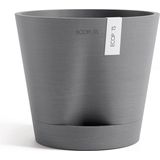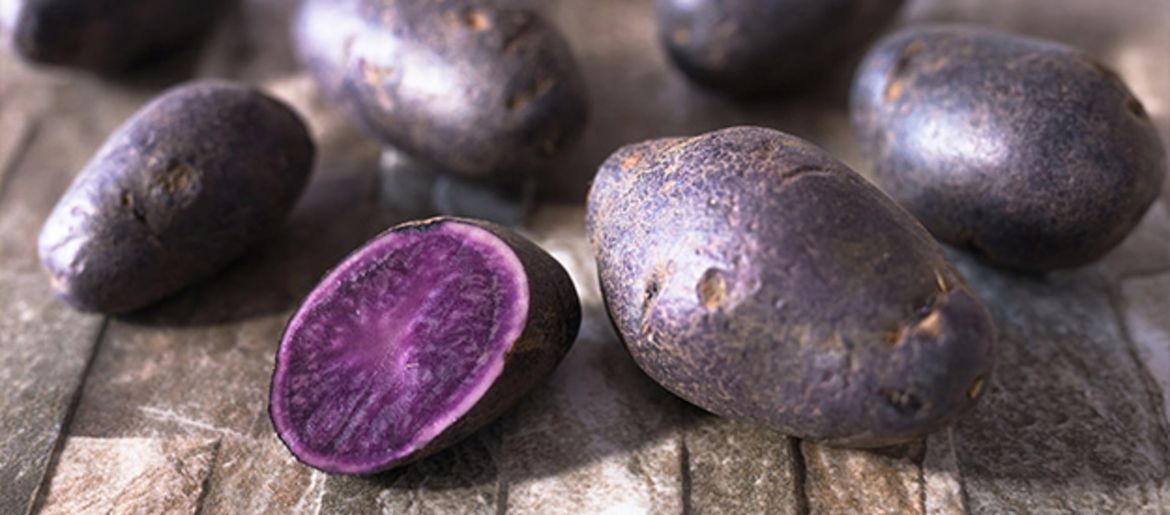The Return of Old Varieties
There are countless varieties of individual vegetables, but you've probably never seen most of them and certainly tasted even fewer. The reason for this is simple: some varieties have a greater yield and are therefore more highly regarded by farmers and vegetable producers. In addition, there were regulations that made it difficult to grow old varieties. Hence we have a far more restricted selection available today than was the case a few generations ago.
Fortunately, there are now hundreds of almost extinct plants returning from the history books to vegetable patches, gardens and orchards. Old varieties are currently very much in vogue and are enjoying great popularity again. Consumer attitudes have changed, and strains passed down through the generations are making a comeback.
People want more variety in the kitchen again. They remember what their grandparents grew and want the same. Old varieties also offer new flavours.
Back then ...
Historically, thousands of different types of fruit and vegetables were grown on a small scale by people who lived off the land. Until the 1920s, many varieties were bred for small gardens and so, with the resurgence in popularity of rarities, we are returning to a time when most people grew their own food. This is how most of the varieties developed over the generations, and surely a variety that survived for 300 years is worth a try?
With the transition to large-scale, commercialized agriculture, there was a concentration on a small number of plant varieties. In addition, the rules introduced by the EU in the 1970s restricted the trade to seeds that had gone through an expensive registration process. The result of these two factors combined was that thousands of ancient varieties became extinct while many others dropped significantly in popularity.
… and today
But the outlook for old strains has changed. In the last decade, regulations have been relaxed again, giving old varieties a boost. And because of this, those who have been advocating for the preservation of older varieties report a new interest in old-fashioned seeds, driven by the recent trend towards sustainability and home-grown vegetables.
But this is also due to the fact that many of the older varieties simply taste better. There are, unfortunately, a myriad of flavours that have long been forgotten. These will be rediscovered by those who choose to grow the old varieties. New strains are often evolutions and/or crosses of older strains bred for greater reliability and disease resistance. Taste was a lower priority because it played no role in making a profit.
Popular interest and genetic diversity
The modern fascination with historical crops also extends to their history.
Old varieties are not just a fruit or vegetable, they can also be an object with a story worth exploring.
Many ancient varieties have fascinating survival stories and bear witness to important historical events. In Great Britain, for example, there is a bean called “Trail of Tears”. This small, flavourful variety got its name from the Cherokee who took the bean with them when they were driven out by American settlers in 1838.
But the greatest contribution made by these historic strains could actually be the genetic diversity they can offer future generations. As controlled pollination has increased and farmers have focused on producing fewer varieties, the gene pool in general circulation has shrunk. It is all the more important that we preserve these older varieties because we may need them if one of these large commercial varieties fails. We have a responsibility to preserve the genetic diversity of our planet and everyone can make a contribution by cultivating old varieties.
Here you will find all the fruit and vegetable rarities that we have on offer on Bloomling. We also have some organic manufacturers in our range who also offer rarities. These include the
- Rarities from Noah's Ark
- Varietal rarities of pure seeds
- Rarities box from Samen Maier
Latest reviews
-
 4.0 (1)
4.0 (1)Ecopots Venice 2 - Grey , Ø 20 cm, height 17.5 cm
-10%- Made from recycled plastic
- Integrated water reservoir
- Handcrafted surface
£20.70 £23.00Delivery by April 24
-
 5.0 (6)
5.0 (6)elho greenville Planter Round 16 cm, Leaf Green
-10%- Leaf Green
- White
- Living Concrete
- Living Black
- Golden Sand
- Integrated water reservoir
- Made from recycled plastic
- Dimensions: Ø 16 x H 15.3 cm
£6.45 £7.15Delivery by April 24
Magazine Articles:
Discover Bloomling:
-
Great Britain: Free standard delivery from £49.90
-
Free
returns More than 6.100 products
Secure payments
with SSL encryption technology

